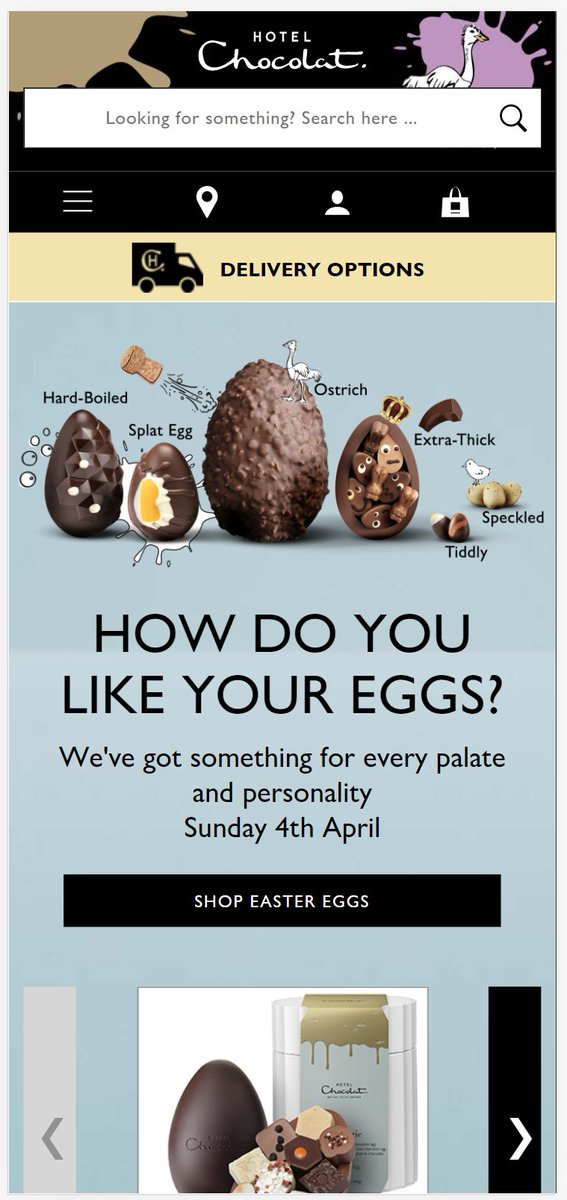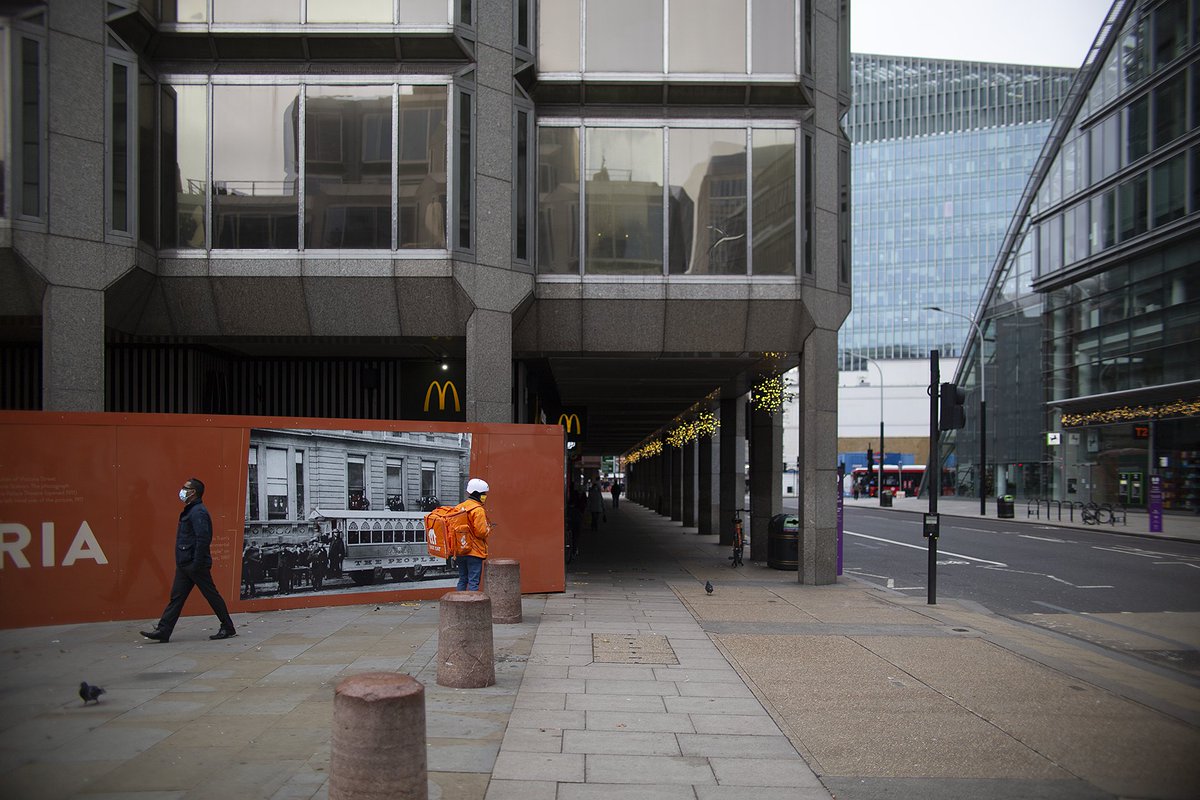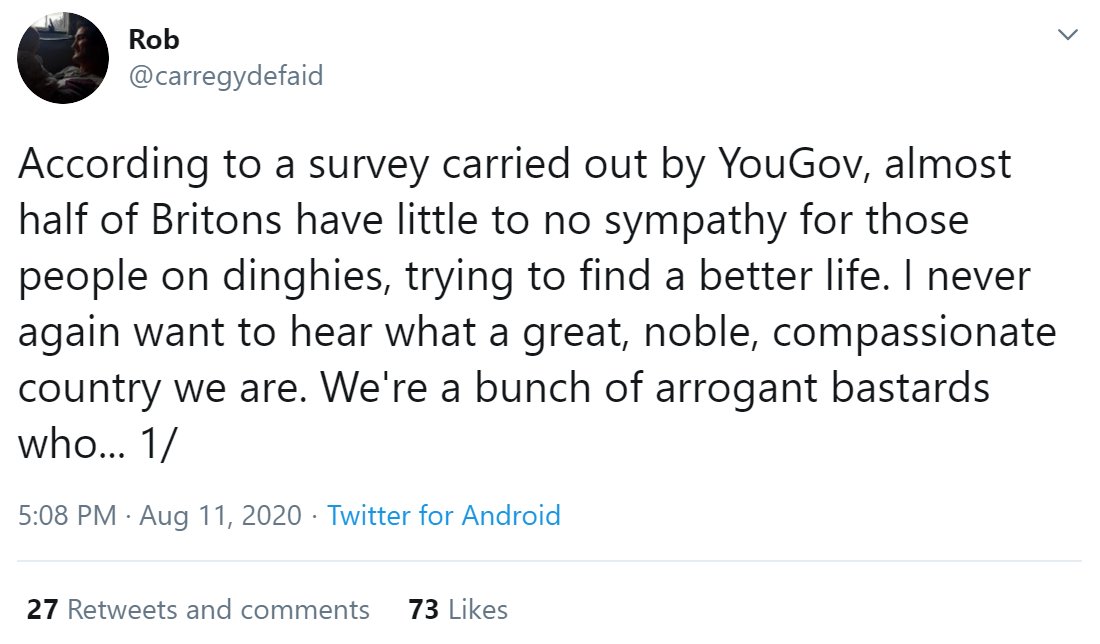
With Thorntons closing all 61 stores, being able to generate demand online is hugely important.
As you can see from this chart of Google searches for their brand name (text search), basically over the last 18 months Hotel Chocolat have 'eaten them alive' online.
As you can see from this chart of Google searches for their brand name (text search), basically over the last 18 months Hotel Chocolat have 'eaten them alive' online.

It's peak 'easter egg' season, so not a great time for this news to come out.
Thorntons rank #2 in Google organic search for 'easter eggs' in the UK but they're not particularly visible as competitor ads bump them down a fair way.
Thorntons rank #2 in Google organic search for 'easter eggs' in the UK but they're not particularly visible as competitor ads bump them down a fair way.

Bidding on 'head terms' like 'easter eggs' is not always a wise thing to do, but you'd have thought they'd at least make it into the shopping ads there which (even reloading & going incognito) are almost entirely Hotel Chocolat. 

Comparing the rough channel mix of each, you can see that Thorntons' traffic is swayed much more toward 'free' channels (direct/organic search). Hotel Chocolat pays for a higher proportion of theirs (Paid Search, Display ads). 

Aesthetics isn't everything, but here're the two sites' homepages side-by-side.
That's sort of fair enough though, no? Hotel Chocolat are aiming at a more 'premium' market, so the site must feel premium?

That's sort of fair enough though, no? Hotel Chocolat are aiming at a more 'premium' market, so the site must feel premium?


Sadly not quite. Here are the prices of the top 4 products sorted by default on each of their 'Easter Eggs' pages (the main link from the homepage main feature).
Hotel Chocolat:
£10
£29
£15
£29
Thorntons:
£70
£20
£30
£25
Hotel Chocolat:
£10
£29
£15
£29
Thorntons:
£70
£20
£30
£25
But saddest of all is perhaps this:
Thorntons are putting all of their eggs in the 'online' basket. Social media is usually a smaller sales channel for online retailers, but is 'free' and useful from a brand/pr perspective.
Here are some quick notes on that.
Thorntons are putting all of their eggs in the 'online' basket. Social media is usually a smaller sales channel for online retailers, but is 'free' and useful from a brand/pr perspective.
Here are some quick notes on that.
Thorntons:
Insta - 6,127 followers
Twitter - 26.3k followers
Hotel Chocolat:
Insta - 215k followers
Twitter - 69.9k followers

Insta - 6,127 followers
Twitter - 26.3k followers
Hotel Chocolat:
Insta - 215k followers
Twitter - 69.9k followers


At least Thorntons are up to date there though - see the insta image above where 'Easter' is their latest post on Insta? Sadly not:
The top post on Thorntons' Insta account is from 2017. (this is a company that have today announced they're going online only)
The top post on Thorntons' Insta account is from 2017. (this is a company that have today announced they're going online only)

Twitter and Facebook are not quite as bad date wise, but are way worse message wise.
The latest posts to Twitter & Facebook are from a year ago, explaining they've stopped orders 'until Monday at 9am'. No update since, though they still link to these channels on their website.

The latest posts to Twitter & Facebook are from a year ago, explaining they've stopped orders 'until Monday at 9am'. No update since, though they still link to these channels on their website.


Then there's email. Both have a fairly similar frequency of emails.
You can see though that Hotel Chocolat are much more aggressive in terms of offers, while still feeling quite 'premium'.
Thorntons are just sadly repetitive (same primary image/messages repeatedly).

You can see though that Hotel Chocolat are much more aggressive in terms of offers, while still feeling quite 'premium'.
Thorntons are just sadly repetitive (same primary image/messages repeatedly).


And finally, social ads.
Here are just a few of the ads Hotel Chocolat are currently running (left).
And on the right, you can see the ads Thorntons are running, 2 weeks ahead of Easter. (ie: they haven't even tested them in the last few years).

Here are just a few of the ads Hotel Chocolat are currently running (left).
And on the right, you can see the ads Thorntons are running, 2 weeks ahead of Easter. (ie: they haven't even tested them in the last few years).


In summary: The online side of Thorntons has been sadly neglected by their owner Ferrero.
It's been a very tough year for retail, but for gift categories like this, demand has been extremely positive online.
Sad to see, for what was, and could be again, an iconic British brand.
It's been a very tough year for retail, but for gift categories like this, demand has been extremely positive online.
Sad to see, for what was, and could be again, an iconic British brand.

• • •
Missing some Tweet in this thread? You can try to
force a refresh






















